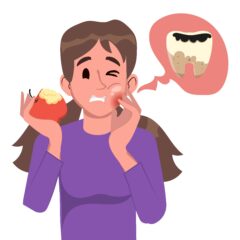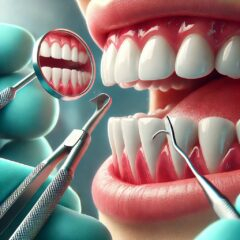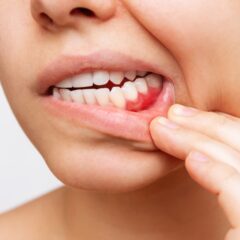
Tooth Decay Symptoms: Learn About Them
Tooth decay is a common condition that affects oral health and can cause severe pain if not treated early. The symptoms of tooth decay vary from person to person, depending on the severity of the decay and how much it affects the teeth. In this article, we will explore the most common symptoms and causes of tooth decay, along with tips for maintaining oral health and preventing decay.
1. Tooth Pain
Tooth pain is one of the most common symptoms indicating tooth decay. The patient may feel sudden or continuous pain in the tooth, which may worsen when consuming hot or cold foods or drinks. The pain can be sharp and sudden or persistent over time.
2. Tooth Sensitivity
Some individuals may experience increased tooth sensitivity due to decay, especially when consuming hot or cold foods and drinks. Sensitivity may also occur when brushing or using dental floss.
3. Swelling and Bleeding Gums
In advanced stages of tooth decay, gum swelling and the appearance of red spots or bleeding may occur, particularly when brushing. This swelling may also be accompanied by pain when pressure is applied to the affected area.
4. Bad Breath or Unpleasant Taste
Tooth decay leads to bacteria accumulation in the decayed areas, which may cause bad breath or an unpleasant taste. These symptoms could indicate severe decay or infection of the tissues around the tooth.
5. Tooth Discoloration or Dark Spots
If you notice a change in the color of your teeth or the appearance of dark or brown spots, this could be a sign of decay. These spots may result from the acids produced by bacteria in the mouth, which attack the enamel.
When Should You See a Doctor?
It is essential to consult a dentist if you experience tooth pain that lasts for two days or more, especially if the pain does not subside after taking painkillers. Additionally, if you notice swelling in the gums or cheeks, or if you experience fever or difficulty eating due to the pain, you should see a dentist as soon as possible.
Tips for Preventing Tooth Decay
Prevention involves daily oral hygiene to maintain healthy teeth and prevent decay. Here are some important tips:
- Brush Regularly: Brush your teeth twice a day with fluoride toothpaste. It is also recommended to use dental floss to clean between the teeth and use an antibacterial mouthwash once a day.
- Reduce Sugar Intake: Limit sugary foods and drinks as they encourage bacteria growth and contribute to tooth decay.
- Visit the Dentist Regularly: It is important to visit the dentist every 6 months for routine check-ups and cleaning.
Treating Tooth Decay
The treatment for tooth decay at Dr. Rana Nassar’s clinic depends on the severity of the decay. In mild cases, the treatment may involve cleaning the tooth, removing the decay, and filling the cavity. However, if the decay has reached deeper layers of the tooth, the patient may need a root canal treatment, or in severe cases, the tooth may need to be extracted.
Tooth decay is a problem that can be easily prevented if proper oral hygiene habits are followed, and decay can be effectively treated to avoid complications.
Keep your teeth healthy by following preventive tips and always stay in touch with Dr. Rana Nassar to monitor your oral health.
- NHS. (n.d.). Toothache. Retrieved from https://www.nhs.uk/conditions/toothache/
- Cleveland Clinic. (n.d.). Toothache. Retrieved from https://my.clevelandclinic.org/health/diseases/10957-toothache
- NHS Inform. (n.d.). Toothache. Retrieved from https://www.nhsinform.scot/illnesses-and-conditions/mouth/toothache/





